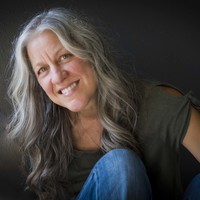
Amanda Stronza
I am an anthropologist, professor, and photographer, with nearly 30 years of conservation field experience in the Amazon and other parts of the tropics, most recently in the Okavango. I am passionate about wildlife and the people who live closest to wild animals all over the world. In 2007, I co-founded the Applied Biodiversity Science Program at Texas A&M University, a doctoral training program for students in the social and biological sciences committed to working with local communities and policy makers to solve on-the-ground conservation challenges. As part of that, I developed an Amazon Field School in my long-term study site in Peru, aimed at helping graduate students gain field experience in conservation. I was a Visiting Professor with the Okavango Research Institute in 2011 when I began research on human-elephant conflict. In 2013, I co-founded Ecoexist, a non-profit organization in Botswana focused on fostering coexistence between people and elephants. I have published over 40 peer-reviewed articles in a variety of academic journals in the social and natural sciences, with research focused on community-based conservation, wildlife and biodiversity conservation, ecotourism, and common pool resource management.
My contribution to conservation is through social science, studying how cultural beliefs, social norms, institutions, livelihoods, policies, and incentives shape human-wildlife interactions.
Much of my work centers around these questions:
1) What are the incentives and sources of inspiration for people to work together in protecting what they value, whether it be a place, a species, a cultural tradition, or a way of life?
2) In places where people have protected wildlife and wild habitats, what are the predictors of success—what sparked stewardship, among whom, how was it sustained?
3) What influences people to love certain species or feel motivated to care about and protect them? What influences people to feel indifference, antipathy, or fear?
I am currently a Professor at Texas A&M with joint appointments in the Departments of Ecology and Conservation Biology, and Rangeland, Wildlife, and Fisheries Management, and I co-direct the Applied Biodiversity Science Program. I am also producing a documentary film in the Peruvian Amazon about local efforts to curb and control the devastating effects of illegal gold mining.
My contribution to conservation is through social science, studying how cultural beliefs, social norms, institutions, livelihoods, policies, and incentives shape human-wildlife interactions.
Much of my work centers around these questions:
1) What are the incentives and sources of inspiration for people to work together in protecting what they value, whether it be a place, a species, a cultural tradition, or a way of life?
2) In places where people have protected wildlife and wild habitats, what are the predictors of success—what sparked stewardship, among whom, how was it sustained?
3) What influences people to love certain species or feel motivated to care about and protect them? What influences people to feel indifference, antipathy, or fear?
I am currently a Professor at Texas A&M with joint appointments in the Departments of Ecology and Conservation Biology, and Rangeland, Wildlife, and Fisheries Management, and I co-direct the Applied Biodiversity Science Program. I am also producing a documentary film in the Peruvian Amazon about local efforts to curb and control the devastating effects of illegal gold mining.
less
InterestsView All (12)
Uploads
Papers by Amanda Stronza